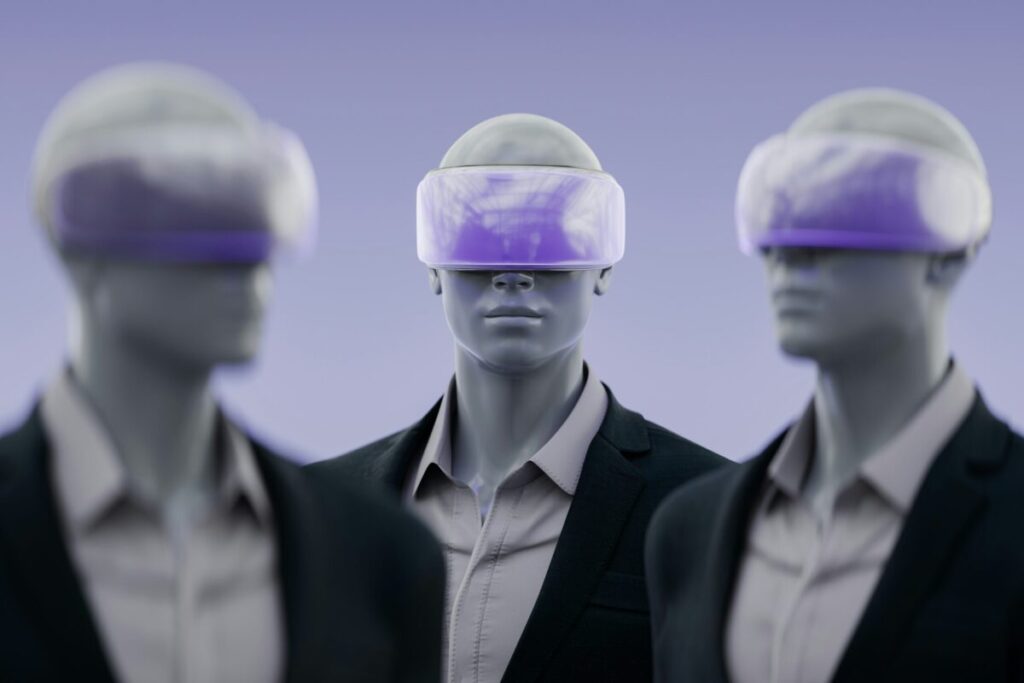The U.S. tech industry is witnessing an unprecedented surge in artificial intelligence (AI) research and development as companies race to position themselves at the forefront of the most transformative technological shift of the decade. With billions in investments and groundbreaking advancements across various sectors, AI is poised to redefine industries such as healthcare, finance, transportation, and entertainment in 2025 and beyond.
Tech giants including Microsoft, Google, Apple, and Amazon are leading the charge, dedicating substantial portions of their annual budgets to the development of AI systems and tools. These companies are integrating AI into their core products and services, ranging from AI-driven cloud computing platforms and smart assistants to self-learning algorithms that automate complex tasks. Smaller startups are also playing a critical role, innovating rapidly in niche areas and attracting significant venture capital funding as investors seek to capitalize on AI’s enormous potential.
“AI is no longer a futuristic concept—it’s here, and it’s evolving faster than anyone anticipated,” said Dr. Kevin Marshall, a leading AI researcher. “Companies are investing heavily in AI because it has the power to revolutionize nearly every aspect of the economy, from automating complex tasks to creating entirely new business models. This is the dawn of a new technological era.”
Among the most significant developments in the AI field is the rapid progress of generative AI, which is capable of creating new content, solving problems, and making predictions based on data without human input. OpenAI’s GPT models, for example, have already demonstrated remarkable capabilities in text generation, customer service, and data analysis. These advances are prompting industries to rethink their operations, with AI not only augmenting human capabilities but also taking on tasks that were once reserved for highly skilled workers.
The impact of AI on the job market is one of the most closely observed aspects of this revolution. While automation and AI integration could lead to the displacement of some jobs, experts argue that new opportunities will emerge in fields such as AI programming, data science, and robotics maintenance. Additionally, AI is transforming healthcare by streamlining diagnostic processes, improving patient care, and assisting doctors in making more accurate decisions. AI-driven drug discovery and genomics are becoming key areas of focus, holding the potential to revolutionize medicine in the coming years.
In the financial sector, AI is already transforming everything from fraud detection to algorithmic trading. Banks and investment firms are deploying machine learning systems that analyze vast amounts of data in real-time to make investment decisions, detect anomalies, and predict market trends with unprecedented accuracy. AI in finance is expected to generate billions in new revenue streams by improving efficiency and opening up previously untapped markets.
While the excitement around AI’s potential is palpable, the rapid pace of development comes with its own set of challenges. Growing concerns about the ethical implications of AI—especially in areas like privacy, bias, and accountability—are prompting discussions about responsible AI development. Tech companies, governments, and regulatory bodies are actively working to address these issues, with many advocating for robust frameworks that ensure AI is developed and used responsibly.
“The promise of AI is immense, but it’s crucial that we implement safeguards to protect privacy and ensure fairness in its application,” said Lisa Grant, a legal expert in technology regulation. “As AI continues to evolve, we need to strike the right balance between innovation and regulation to make sure it benefits society as a whole.”
In response to these concerns, many companies are incorporating ethical AI principles into their development processes, ensuring transparency and fairness in their algorithms. Some are also investing in explainable AI systems, which aim to provide greater insight into how AI models make decisions and predictions.
As the AI race intensifies, the U.S. tech industry is positioning itself as the global leader in artificial intelligence development. With continued investments and innovations, AI is set to be a defining force in the next generation of technology, reshaping everything from the workforce to global economies in ways previously unimaginable. The question now is not if AI will change the world, but how quickly—and in what ways—it will do so.


